Fruit Juices

Store-bought fruit juice contains the same amount of sugar as a drink to which you add sugar. In other words, when you buy juice at the supermarket, you’re drinking sugary water with a fruit flavor.
During industrial production of juices, beneficial dietary fibers are destroyed, and only sugar remains from the fruit.
Fried Nuts

Nuts are healthy due to their content of monounsaturated and polyunsaturated fats. They promote the strengthening of blood vessels and help reduce inflammatory processes in the body.
However, the heat treatment of nuts affects the oxidation of beneficial fats, resulting in harmful free radicals forming. Therefore, if you want to benefit from nuts, consume them raw or dried.
Yogurts With Fillings

In store-bought fruit-flavored yogurts, there are about 2 teaspoons of sugar per 100g, plus preservatives and stabilizers. Moreover, during the production of such products, fat is separated to control its level of fatness, and then added back, reducing its quality.
Therefore, it’s better to consume yogurts without filling or make them at home from whole milk.
Fat-Free Products

Not everyone enjoys fat-free products, and for this reason, manufacturers add sugar to them, which is harmful to the body when consumed in excess. And if the product’s packaging reads “low-fat” or “fat-free,” it’s a well-processed product with a high sugar content.
Dry Breakfasts
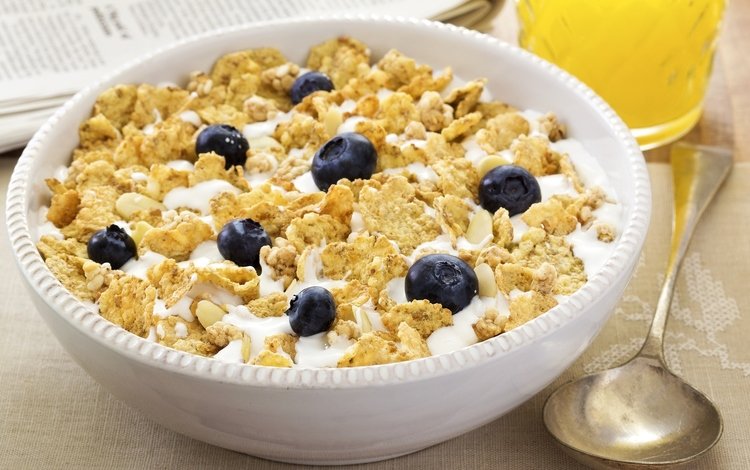
If you think that cereal for breakfast is healthy, we have bad news for you. The ingredients often contain sugar, refined grains, and chemical additives.
Whole Grain Foods

Many products labeled as “whole wheat” are not actually made from whole grains. Whole grain bread can have the same glycemic index as regular white bread since the grains are still ground into flour, which raises blood sugar levels.
Butter

Butter with a fat content of 72.5% or lower is not natural butter. This is actually trans fat or very low-grade vegetable oil that has been hydrogenated. Natural butter must have a fat content of at least 82.5%.
Foods With Fructose
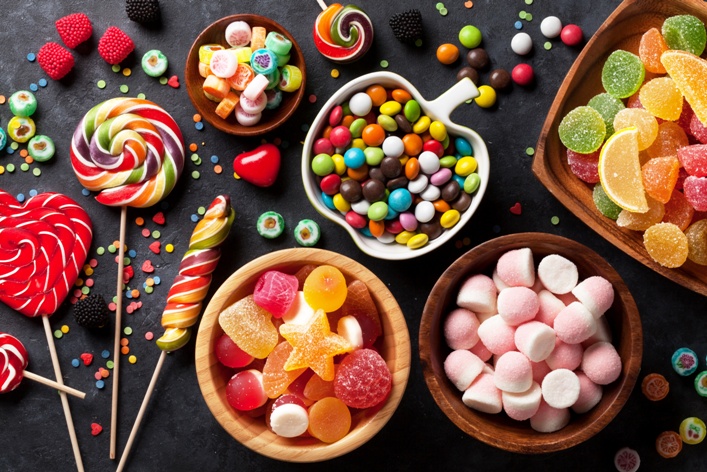
Fructose is often added to various diet products, but industrial fructose is actually corn syrup. Regular consumption of this can lead to obesity, gout, and liver problems.
Chocolate

Real dark chocolate should be distinguished from cheap chocolate bars. In cheap chocolates, instead of cocoa butter, vegetable fats are used, and grated cocoa is replaced with cocoa powder, there is little benefit, but it is cheap.
Dark chocolate with a high content of cocoa beans stimulates the production of endorphins, promotes healthy skin, prevents cardiovascular diseases, helps fight diabetes, and strengthens the immune system.
Store Baked Goods

In baked goods, especially in cookies and rolls, there is a lot of sugar, trans fats, and preservatives. This negatively affects the cholesterol level and vascular health.
Fresh warm baked goods should not be overindulged in either, as they are made from yeast dough, which increases stomach acidity. As a result, you can get heartburn and gastritis.
Coffee

Coffee stimulates the nervous system and helps many people wake up, but at the same time, it dehydrates and leaches calcium from the body. This can lead to the development of osteoporosis. Therefore, limit yourself to 1-2 cups of this drink per day.
Soy Milk

Soy milk can mimic the hormone estrogen, as it activates its receptors in the body. It is not recommended to drink soy milk often, it’s better to replace it with almond milk.
Light Soda
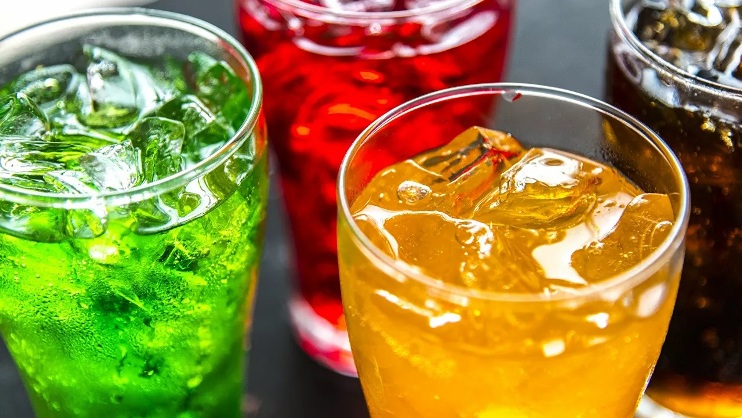
Light carbonated drinks do not contain sugar. However, the sugar substitutes in their composition are not as safe as one might think. Aspartame breaks down into toxic substances: formaldehyde, methanol, and phenylalanine.
Chips and French Fries

The main harm in chips and French fries is the overheated and overcooked oil, which accumulates carcinogens that are dangerous to health.
Canned Green Peas and Corn
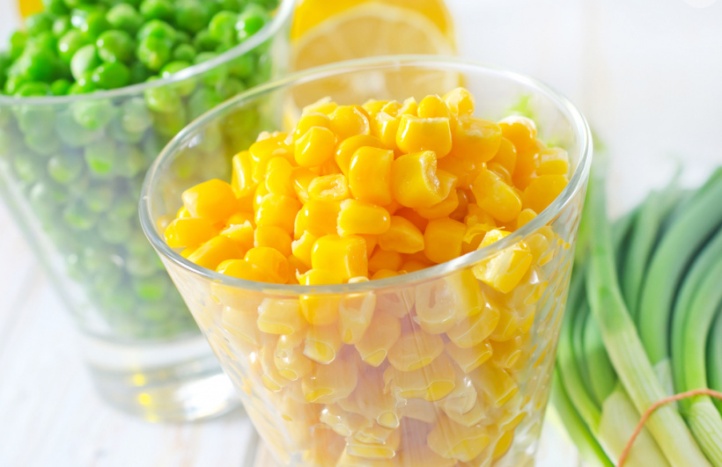
Experts recommend not skimping on canned green peas and corn. Often, manufacturers lower the price of their products by using feed corn and peas.
Sausages
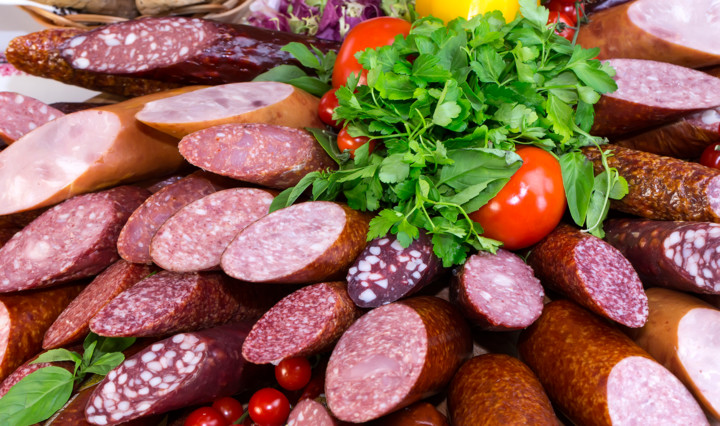
Sausages contain a large amount of fat. They consist mainly of pork skins and fat, cartilage, skin, and by-products, as well as genetically modified soy and preservatives, stabilizers, thickeners, flavorings, and other additives. Are you still eating sausages?
Instant Noodles
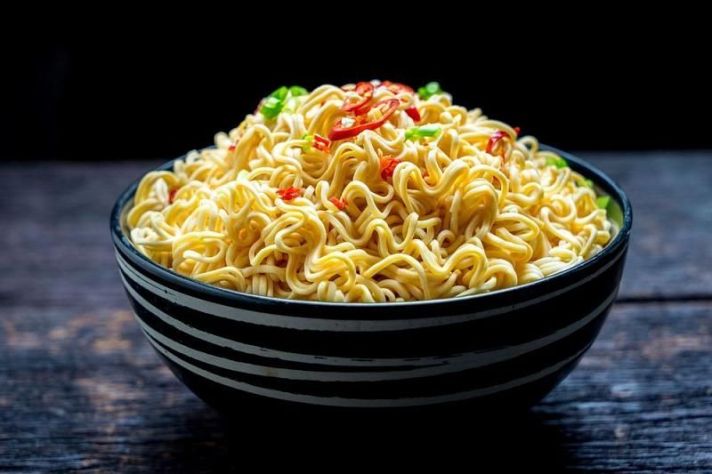
Instant noodles are often sold with supposed additions of chicken, bacon, shrimp. But none of these products are actually in the composition. It is simply a mixture of preservatives, dyes, flavor enhancers, and flavorings.
Mayonnaise

Store-bought mayonnaise consists of trans fats, which contribute to the rapid development of diabetes and worsen immunity.
Also, the plastic packaging is dangerous because vinegar eats away at the packaging walls. Consider that we are eating plastic with our mayonnaise.
Popcorn
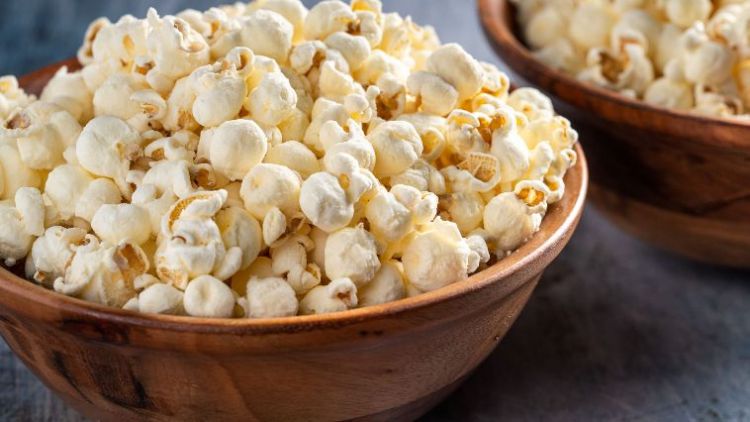
Popcorn, like corn, can be healthy, but all the healthy nutrients are drowned out by caramelizers, large amounts of salt, oils, and flavor enhancers. Excessive salt intake is harmful and can lead to increased blood pressure and kidney problems.
Canned Fruits

Canned fruit in tin cans is less healthy than its fresh or frozen counterparts. They are filled with sugar syrup, which significantly increases their sugar content.
During processing and storage, the amount of fiber, minerals, and vitamins decreases in the fruit, and they also oxidize from the metal of the can.
Cheese

To make one kilogram of cheese approximately 10 liters of milk, rennet, starter culture, and salt are required. You can find cheap cheese on the market that contains vegetable oils and starch. This is no longer cheese, but a cheese product.
Real cheese contains a lot of phosphorus, easily digestible protein, and calcium, but this is not found in the cheaper alternative.
Chicken Nuggets

Chicken nuggets are deep fried, and as you may have guessed, they are a harmful mixture of trans fats.
Canned Food
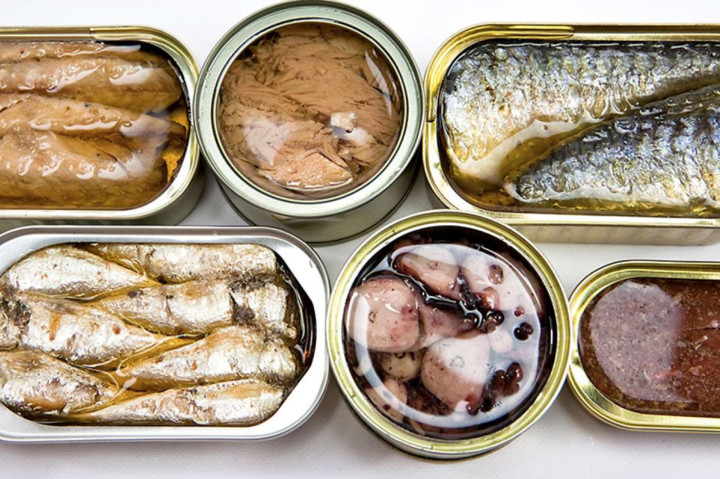
Canned food is a dead product. They contain preservatives, sugar, flavorings, and a lot of salt.
Chocolate Bars

Good chocolate candy without palm oil is not only a pleasure but also beneficial. But the bars that advertising encourages to satisfy hunger contain a large amount of sugar. The daily norm of sugar for a healthy person is 50 grams per day. This includes “hidden” sugar in sauces or even unsweetened cookies.
One candy bar can consume our daily sugar intake. As for “colorful” sweets – caramels, marmalades, chewing gums – chemical flavorings and dyes are added, as evidenced by the label “taste and aroma identical to natural.”
Sweet Carbonated Drinks

Carbonated drinks are loaded with sugar. One liter of “Coca-Cola,” “Pepsi,” or “Fanta” contains about 110 grams of sugar and 420 calories, caffeine is harmful to blood vessels, and orthophosphoric acid washes calcium out of the body.
Salt
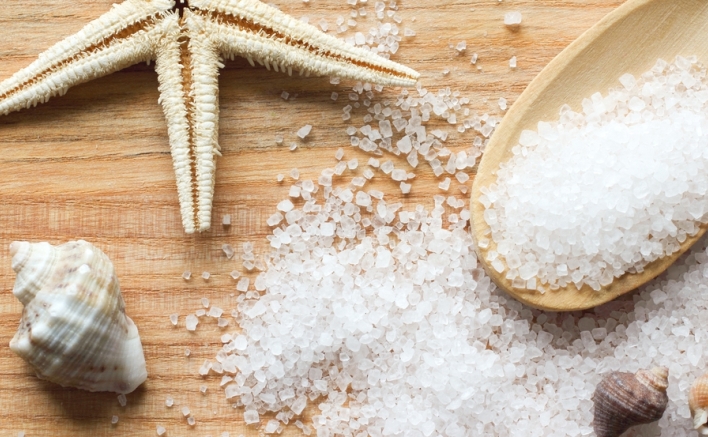
Salt retains water in the body and then deposits it in unwanted places. It is better to under salt food and get used to the natural taste of products.
Sweets
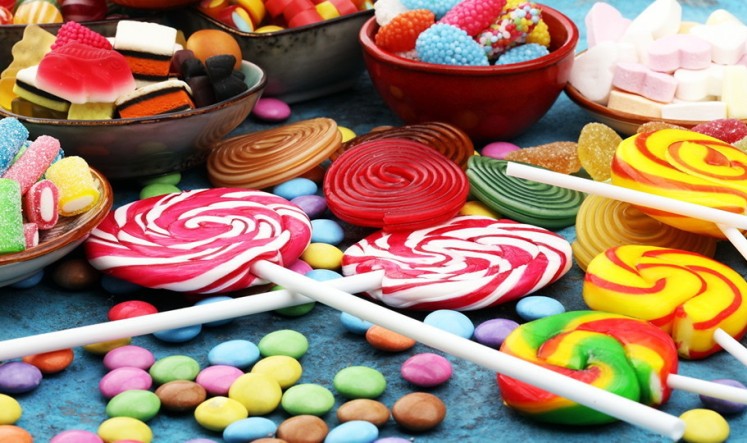
Everyone loves sweets, but the most harmful of them are candies, jelly and chewy candies that contain artificial colorings and flavors. It’s better to eat a piece of cake instead.
It is recommended to use natural honey, dried fruits, and dark chocolate in your diet.
White Bread

All flour products are very tasty, but there is nothing useful in them because the flour used to make them is already stripped of its nutritious fiber.
Canned Vegetables

Canned vegetables lose many nutrients because the destruction of bacteria requires high temperatures. As a result, beneficial substances, primarily vitamin C, are destroyed.
Margarine and Trans Fats

Margarine contains a large amount of trans fats, which, with regular consumption, worsen the condition of joints and ligaments. The body poorly withstands stress and a person’s risk of developing depression increases.
Trans fats are also dangerous for men of different ages; they lower testosterone levels and worsen sperm quality.

